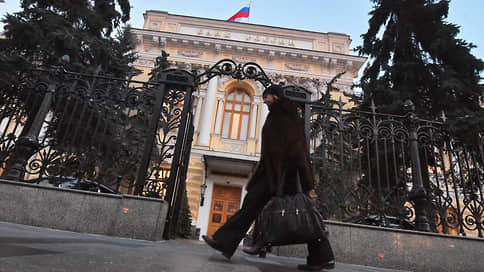The rich are not afraid of inflation – Newspaper Kommersant No. 56 (7501) of 04/03/2023
[ad_1]

The results of the household finance survey published by the Bank of Russia in the spring-summer of 2022 reveal the reasons for the weakness of private demand in this period – it was mainly financed by the poor cohorts of the population out of fear of inflation, which de facto dispersed inflationary expectations. High-income groups and financially literate citizens preferred to save, earning on soaring bank rates. The data obtained confirm the assumption that stimulating demand, including through the expansion of social support, without improving the financial literacy of its recipients, will only provoke the Central Bank to a tighter monetary policy, but will have little effect on aggregate demand and economic growth.
The Bank of Russia presented the results of the All-Russian survey of households on consumer finance. In mid-2022, for the first time, the Central Bank surveyed more than 6 thousand families in 38 localities of the country – earlier in 2013, 2015, 2018 and 2020, the same survey was conducted by the Ministry of Finance jointly with the World Bank. 70% of responses received in May-June 2022. “This is the most critical period of the last year. It is important to take this into account when interpreting the results,” said Ksenia Yudaeva, First Deputy Chairman of the Central Bank, presenting the results of the survey.
However, de facto, even in the crisis April-August 2022, no super-strong changes were found in the financial behavior of Russians. So, the Central Bank found that in their sample the distribution of income is generally close to the estimates of Rosstat, although the income of wealthy households is slightly lower – about 70 thousand rubles. per person against 90 thousand rubles. at statisticians. Most families in April-August 2022 saved no more than 20% of their income, preferring bank accounts (65%), less than a quarter of respondents had bank debts, while the costs of payments on them predictably amounted to a maximum of spending by poor households.
According to polls, in April-August 2022, wealthier people preferred to save money and were more afraid of layoffs, while people with low incomes were more likely to accelerate inflation, preferring to spend free money and creating a rush demand for food (buckwheat, sugar, etc.) .). “This model of behavior complicates the stabilization of the situation and justifies a tougher reaction of monetary policy,” said the first deputy chairman of the Central Bank. It should be noted that the formal growth in demand thus affected mainly goods of “poor” consumption with low added value, which had little effect on macroeconomic indicators.
As a result, the Central Bank recorded: the least well-to-do respondents have inflation expectations twice as high as those who do not experience material difficulties, while the youngest have the least, because, according to the Central Bank, young people do not remember crises accompanied by inflation surges. However, in general, inflation expectations are the lower, the higher the level of financial literacy of respondents, and this relationship does not depend on age. The most financially literate people increased their savings in 2022 when the regulator raised rates to 20%, causing savings rates to rise.
Alexander Isakov from Bloomberg Economics adds another observation: according to infom on the dependence of inflation expectations on the answer to the question “Do you think prices have grown faster or slower in the last 5 years than in the previous 5–10 years?” those who believe that prices rose faster (erroneously) had a median of inflation expectations above 12%, while those who believe that prices rose more slowly (correctly) had a median slightly below 8%. At the same time, only 5% of respondents correctly assess the rate of price growth. “The conclusion is clear. Do we want to anchor citizens’ inflationary expectations? It is necessary to consistently achieve the inflation target and engage in financial literacy,” Mr. Isakov concludes. It should be noted that financial literacy acquires a separate weight in connection with the expansion of social support: without educating the population, the work of the mechanism for its transformation into inflation and the rush demand of the Central Bank has de facto already studied in detail.
[ad_2]
Source link






